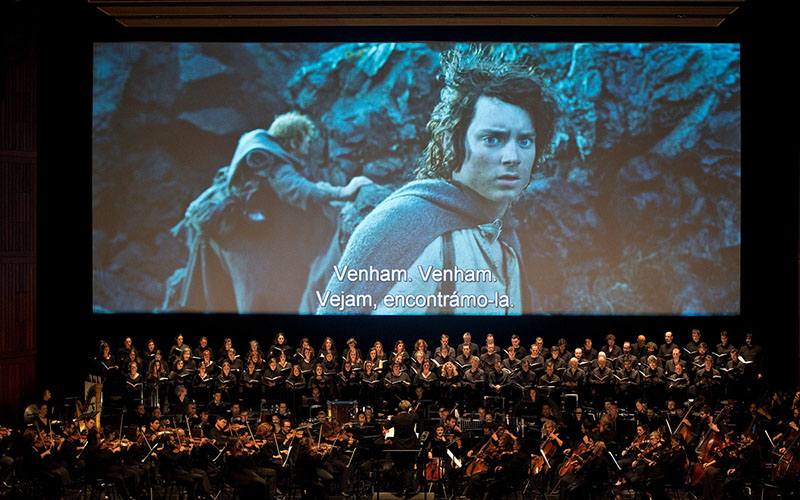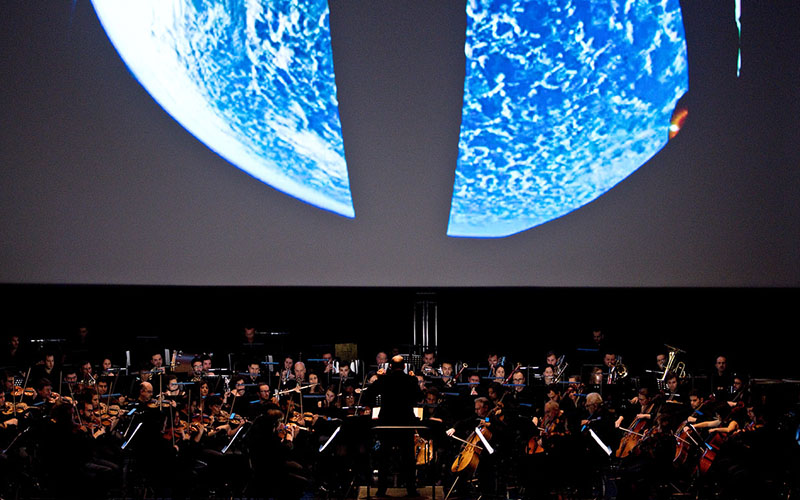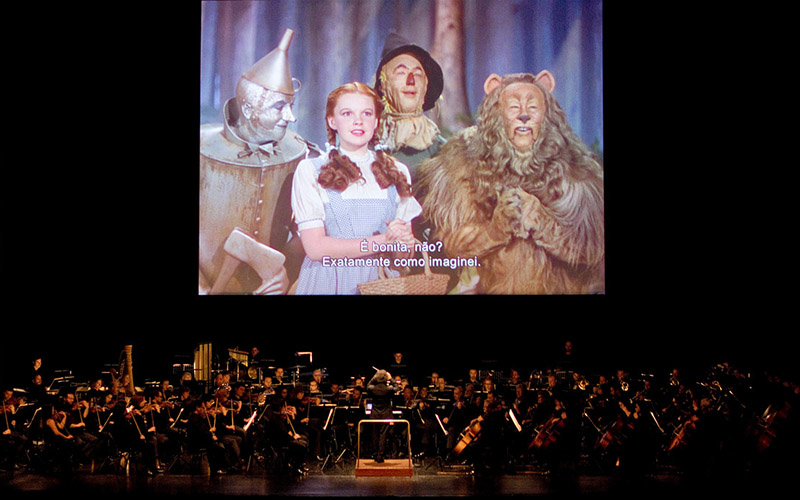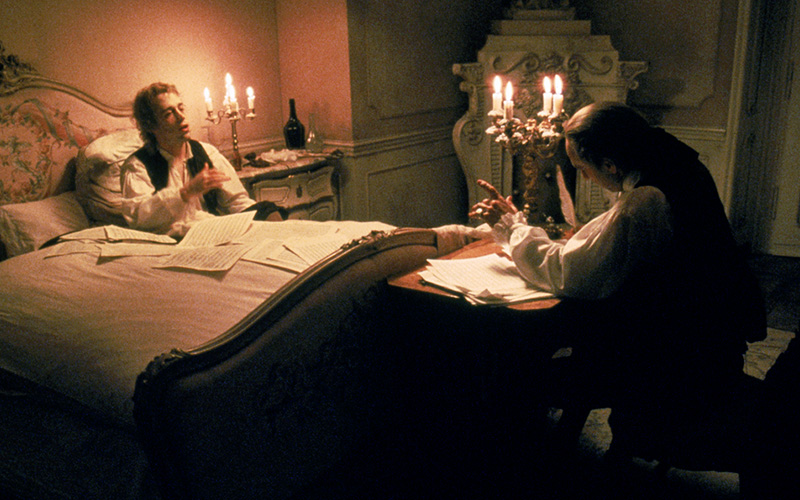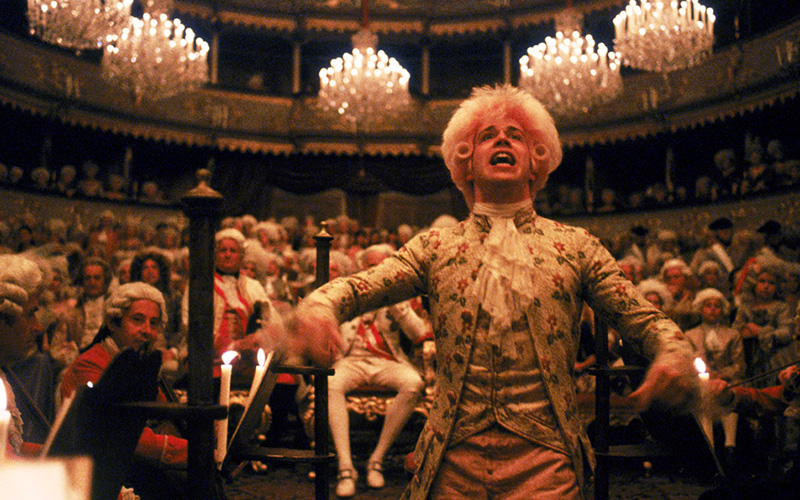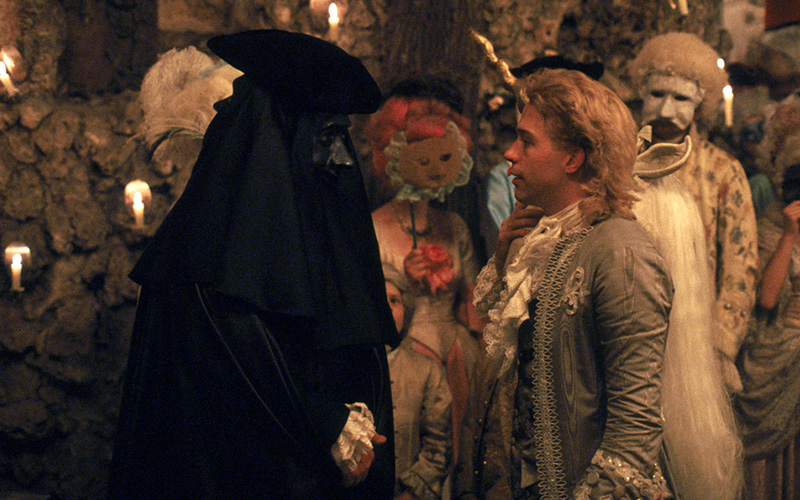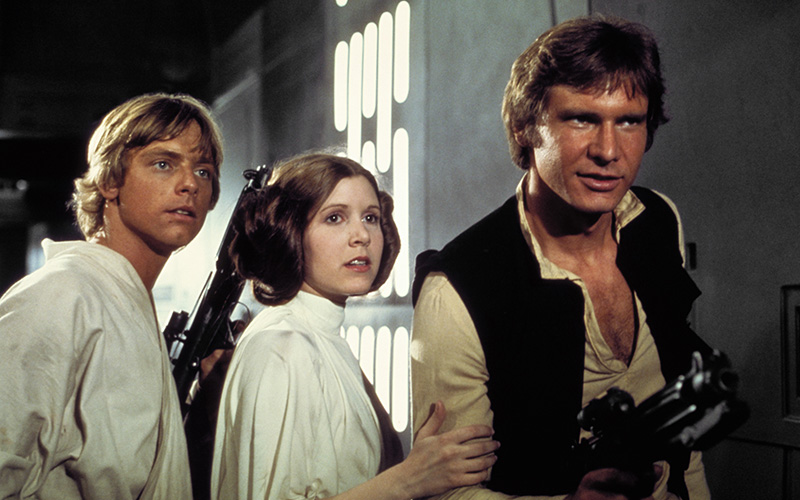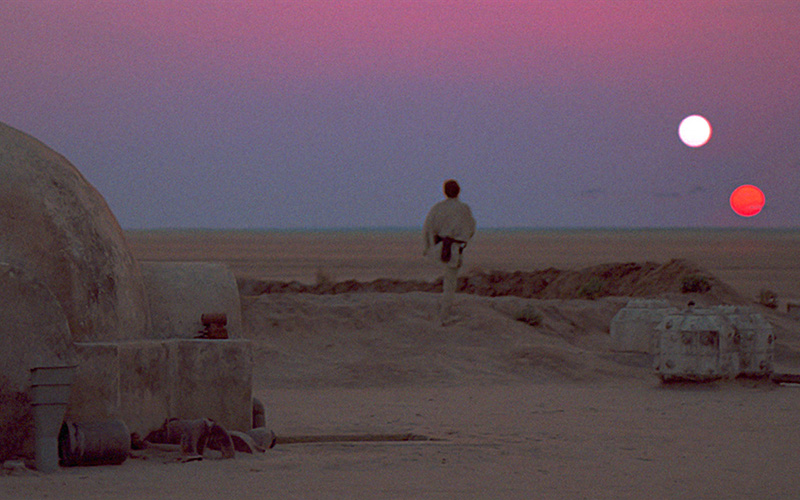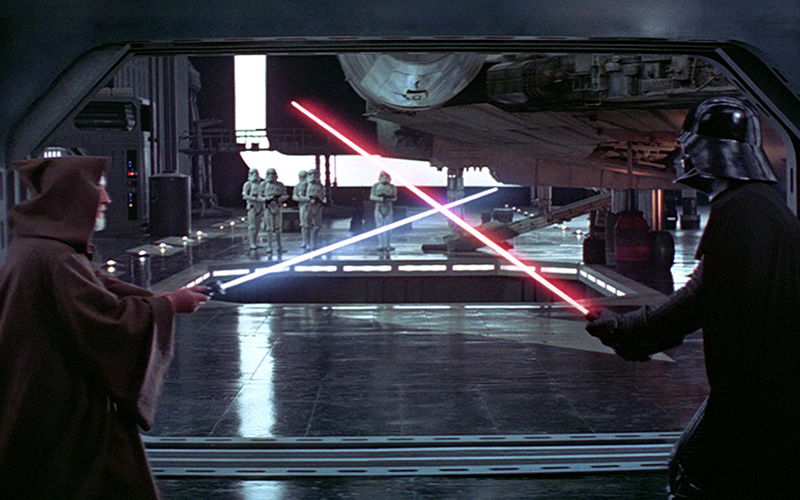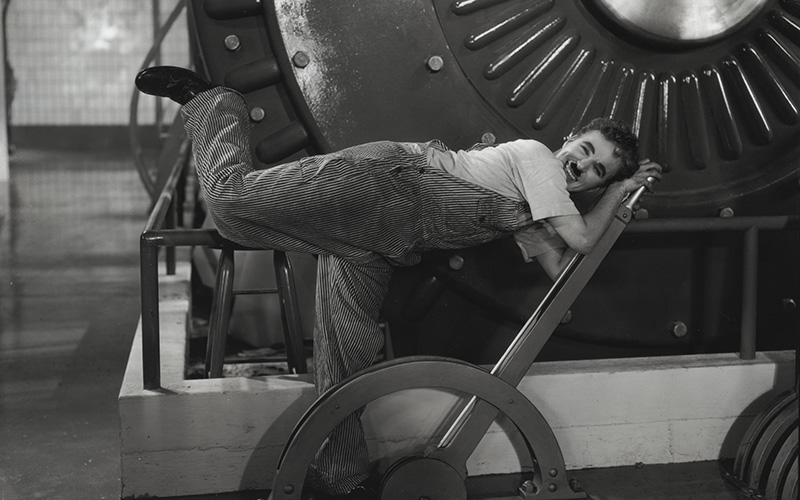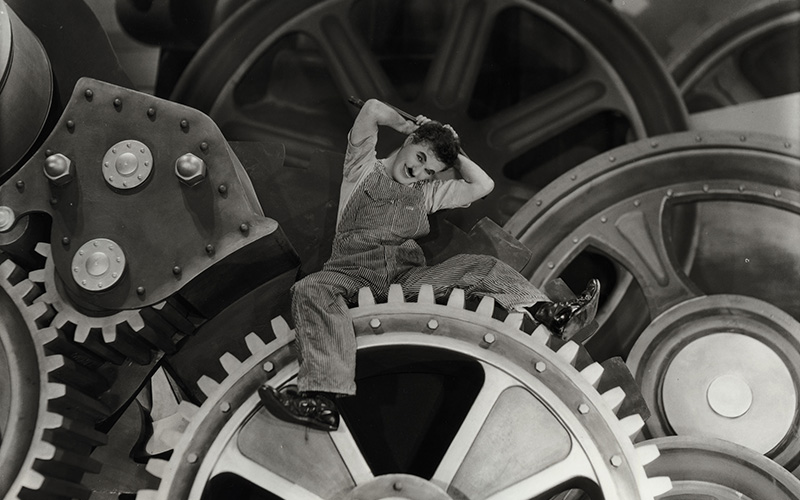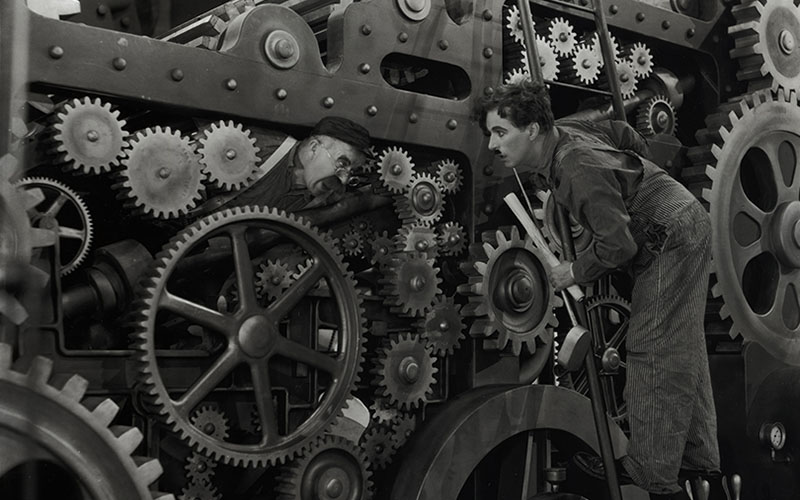Cinema in concert
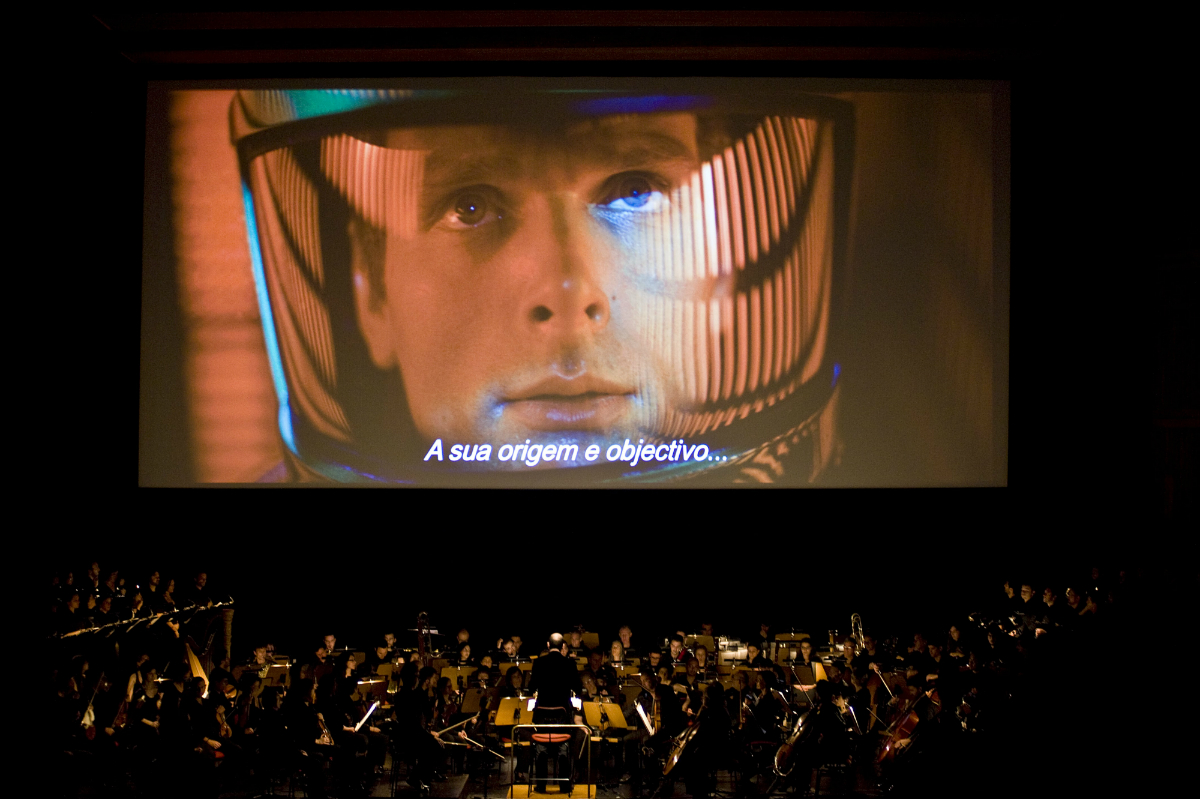
Since the first performance of the film-concert format in May 2015, with the screening of Stanley Kubrick’s 2001 – A Space Odyssey, the performance of live soundtracks by the Gulbenkian Choir and Orchestra has been enormously successful in the Gulbenkian Music seasons.
After the Lord of the Rings trilogy, the timeless Wizard of Oz, and the screening of NASA images during the performance of The Planets, will be three events in the 18/19 Season in which audiences can repeat this unforgettable high definition experience on the big screen in an even more engaging way, celebrating the relationship between images and music.
Amadeus
In December (13, 14 and 16), the screening of Miloš Forman’s film Amadeus (1984), a reference title of 20th century cinema, is combined with a live performance of Mozart’s music by the Gulbenkian Choir and Orchestra.
The film emphasises the difficult relationship between Mozart and Sallieri (a respected composer at the time) and the process of composing some of his best known works. In one of the most exciting moments of the film, we witness the end of Mozart’s life (who died at age 35) while trying unsuccessfully to finish his last work: the timeless Requiem.
Star Wars
On 11, 12 and 13 January George Lucas’ timeless Star Wars saga will arrive in the Grand Auditorium. The Gulbenkian Orchestra will play live the music of the first film made in 1977: Star Wars: A new hope.
On the process of composition, John Williams told Gramophone magazine: “I think in my mind, and possibly also George Lucas’s, when I was writing the score, I thought it was a children’s film (…) The emotions would have to be large, a sense of good versus evil made palpable. Simple tunes would be the key.” And it would soon prove that this “key” was right.
Modern Times
In May (17 and 18), shortly before the end of the season, it will be Charlie Chaplin’s turn, with his iconic film Modern Times (1936). It’s a comedy anchored in the industrialised world, whose restoration in 1999 served as a pretext for commissioning Timothy Brock to restore the score composed by Chaplin himself.
Although he didn’t have a musical background and didn’t know how to read a score, Charlie Chaplin played several instruments and began composing the soundtracks for his films as soon as sound was introduced in cinema.
